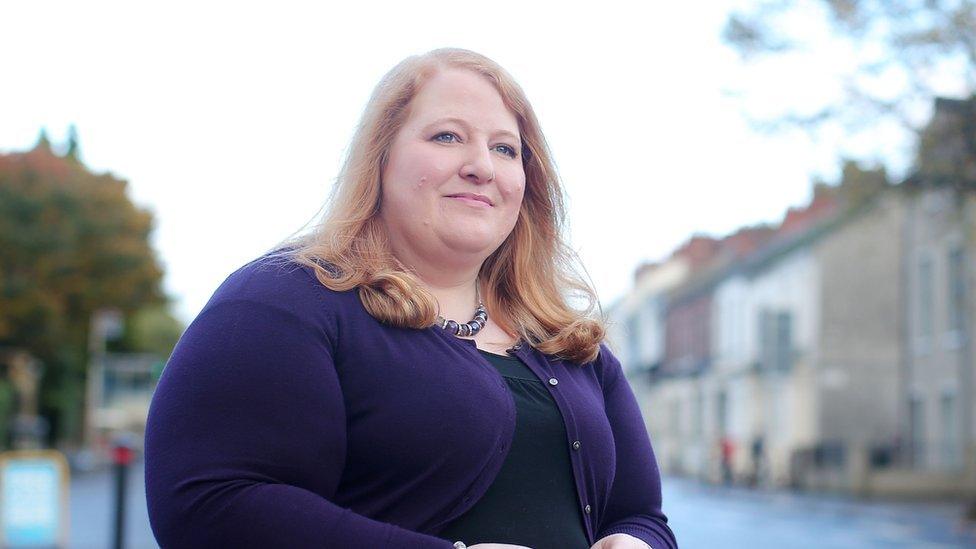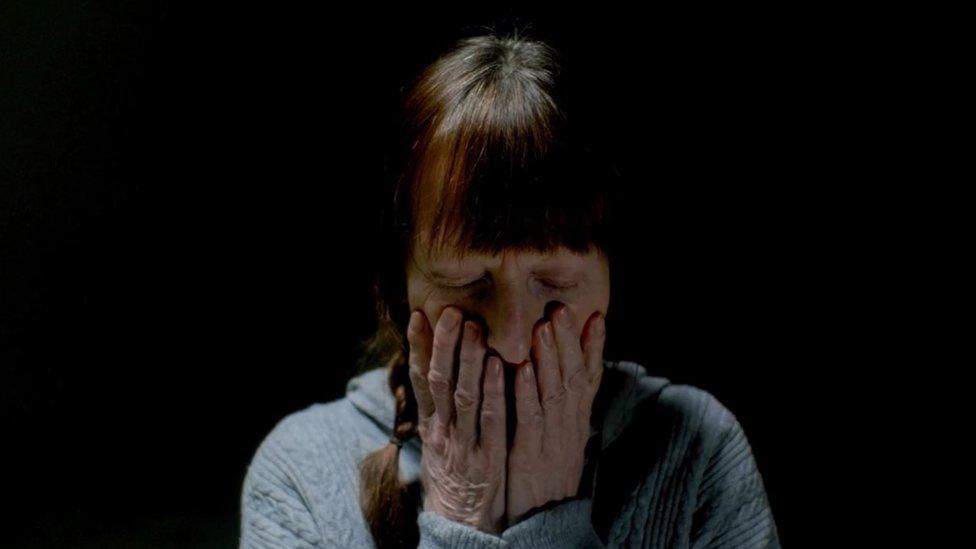Sex education should be part of strategy to end violence against women
- Published

Changes to relationships and sex education in schools should be part of a Stormont strategy to end violence against women and girls.
The portrayal of women in media and a culture of "victim-blaming" also need to be addressed.
Those are among the key themes identified after a call for views on a proposed Ending Violence Against Women and Girls strategy.
Northern Ireland is the only part of the UK without a specific strategy.
A separate but related Stormont strategy aimed at tackling domestic and sexual abuse is also being developed.
In February new domestic abuse laws came into force in Northern Ireland, which included making coercive control a specific offence.
Earlier this year, individuals and organisations were invited to give their views on both strategies.
A report on the responses regarding the Ending Violence Against Women and Girls (EVAWG) Strategy has just been published by the Executive Office.
There were more than 400 survey responses from members of the public, 250 responses to a survey of victims and 91 written responses.
About 60 organisations were also represented at events to discuss the strategy.
'Boys will be boys'
Relationship and Sex Education (RSE) emerged as one of the most commonly mentioned themes during the process.
Each school in Northern Ireland is required by the Department of Education to develop its own RSE policy.
However, what is actually taught to pupils about RSE is a matter for each school to decide based on their school ethos.
An expert advisory panel for Stormont's gender equality strategy previously called that approach "inconsistent and insufficient."

Online abuse suffered by women and girls was highlighted as a key theme
Some respondents to the call for views on the EVAWG strategy also said it needed to "address" RSE which should have "a mandated minimum content, be delivered across the curriculum and in an age appropriate way".
They also said that it should be provided beyond schools, "for example in youth clubs, community organisations and workplaces".
"The strategy needs to include recommendations for improved teacher training, as the attitudes and behaviours of some teachers are gender stereotyped - for example the existing attitude of "boys will boys" amongst some in the profession," the call for views summary said.
But some respondents said what was taught in RSE should still take account of "the ethos of individual schools".
Revenge porn
How women are portrayed in the media was criticised by some respondents to the strategy.
"The portrayal of women in the media, on television and online, creates gender stereotypes, which can then impact on the attitudes and behaviours of men leading to violence against women and girls," they said.
"This needs to be addressed."
The online abuse suffered by women and girls was also highlighted as a key theme - including threats, cyber-stalking, revenge porn and harassment.
A number of female politicians have recently spoken about the abuse they have received on social media.
"Women we work with have reported stalking, having unsolicited pictures of male genitalia sent to them, cat-calling, having ex-partners spread explicit information and sexualised images online, being recorded having sex, without consent and these videos shared online," one organisation said in response to the call for views.
Victim-blaming
Victim-blaming was also highlighted as a key theme as part of the need for wider "cultural change" in society.
"The strategy should address the 'victim blaming' culture that persists across society," one respondent said.
"The perpetrator, not the victim, bears responsibility for their actions, and this must be evident."
In 2021, the PSNI apologised for sharing leaflets which linked rape to a victim's alcohol intake and said they had been distributed "in error".
Other key themes raised in the EVAWG call for views included the need for funding for support services and for any strategy to have measurable outcomes based on accurate data.
A draft strategy for ending violence against women and girls will now be drawn up and should be ready for public consultation in early 2023.
Related topics
- Published18 March 2021

- Published13 March 2021

- Published21 February 2022

- Published10 January 2022
